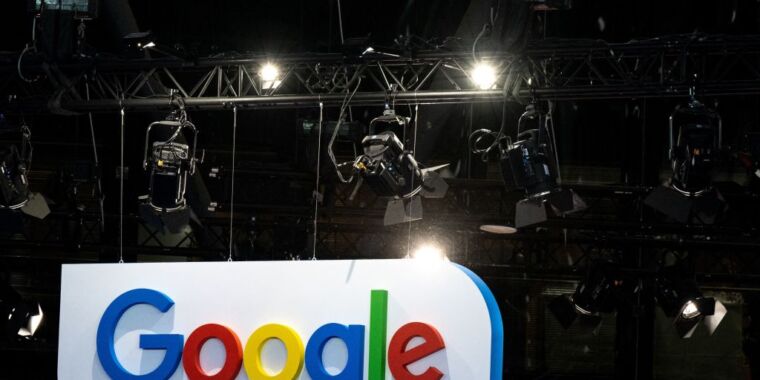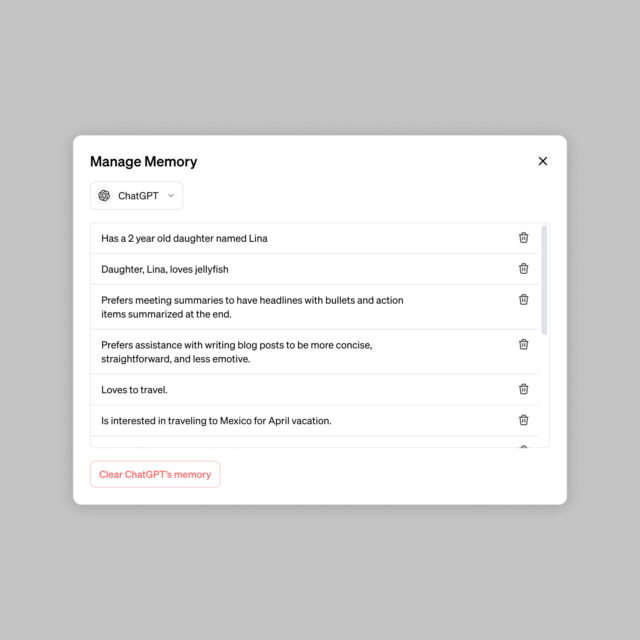Google balks at $270M fine after training AI on French news sites’ content

Google has agreed to pay 250 million euros (about $273 million) to settle a dispute in France after breaching years-old commitments to inform and pay French news publishers when referencing and displaying content in both search results and when training Google’s AI-powered chatbot, Gemini.
According to France’s competition watchdog, the Autorité de la Concurrence (ADLC), Google dodged many commitments to deal with publishers fairly. Most recently, it never notified publishers or the ADLC before training Gemini (initially launched as Bard) on publishers’ content or displaying content in Gemini outputs. Google also waited until September 28, 2023, to introduce easy options for publishers to opt out, which made it impossible for publishers to negotiate fair deals for that content, the ADLC found.
“Until this date, press agencies and publishers wanting to opt out of this use had to insert an instruction opposing any crawling of their content by Google, including on the Search, Discover and Google News services,” the ADLC noted, warning that “in the future, the Autorité will be particularly attentive as regards the effectiveness of opt-out systems implemented by Google.”
To address breaches of four out of seven commitments in France—which the ADLC imposed in 2022 for a period of five years to “benefit” publishers by ensuring Google’s ongoing negotiations with them were “balanced”—Google has agreed to “a series of corrective measures,” the ADLC said.
Google is not happy with the fine, which it described as “not proportionate” partly because the fine “doesn’t sufficiently take into account the efforts we have made to answer and resolve the concerns raised—in an environment where it’s very hard to set a course because we can’t predict which way the wind will blow next.”
According to Google, regulators everywhere need to clearly define fair use of content when developing search tools and AI models, so that search companies and AI makers always know “whom we are paying for what.” Currently in France, Google contends, the scope of Google’s commitments has shifted from just general news publishers to now also include specialist publications and listings and comparison sites.
The ADLC agreed that “the question of whether the use of press publications as part of an artificial intelligence service qualifies for protection under related rights regulations has not yet been settled,” but noted that “at the very least,” Google was required to “inform publishers of the use of their content for their Bard software.”
Regarding Bard/Gemini, Google said that it “voluntarily introduced a new technical solution called Google-Extended to make it easier for rights holders to opt out of Gemini without impact on their presence in Search.” It has now also committed to better explain to publishers both “how our products based on generative AI work and how ‘Opt Out’ works.”
Google said that it agreed to the settlement “because it’s time to move on” and “focus on the larger goal of sustainable approaches to connecting people with quality content and on working constructively with French publishers.”
“Today’s fine relates mostly to [a] disagreement about how much value Google derives from news content,” Google’s blog said, claiming that “a lack of clear regulatory guidance and repeated enforcement actions have made it hard to navigate negotiations with publishers, or plan how we invest in news in France in the future.”
What changes did Google agree to make?
Google defended its position as “the first and only platform to have signed significant licensing agreements” in France, benefiting 280 French press publishers and “covering more than 450 publications.”
With these publishers, the ADLC found that Google breached requirements to “negotiate in good faith based on transparent, objective, and non-discriminatory criteria,” to consistently “make a remuneration offer” within three months of a publisher’s request, and to provide information for publishers to “transparently assess their remuneration.”
Google also breached commitments to “inform editors and press agencies of the use of their content by its service Bard” and of Google’s decision to link “the use of press agencies’ and publishers’ content by its artificial intelligence service to the display of protected content on services such as Search, Discover and News.”
Regarding negotiations, the ADLC found that Google not only failed to be transparent with publishers about remuneration, but also failed to keep the ADLC informed of information necessary to monitor whether Google was honoring its commitments to fairly pay publishers. Partly “to guarantee better communication,” Google has agreed to appoint a French-speaking representative in its Paris office, along with other steps the ADLC recommended.
According to the ADLC’s announcement (translated from French), Google seemingly acted sketchy in negotiations by not meeting non-discrimination criteria—and unfavorably treating publishers in different situations identically—and by not mentioning “all the services that could generate revenues for the negotiating party.”
“According to the Autorité, not taking into account differences in attractiveness between content does not allow for an accurate reflection of the contribution of each press agency and publisher to Google’s revenues,” the ADLC said.
Also problematically, Google established a minimum threshold of 100 euros for remuneration that it has now agreed to drop.
This threshold, “in its very principle, introduces discrimination between publishers that, below a certain threshold, are all arbitrarily assigned zero remuneration, regardless of their respective situations,” the ADLC found.
Google balks at $270M fine after training AI on French news sites’ content Read More »












